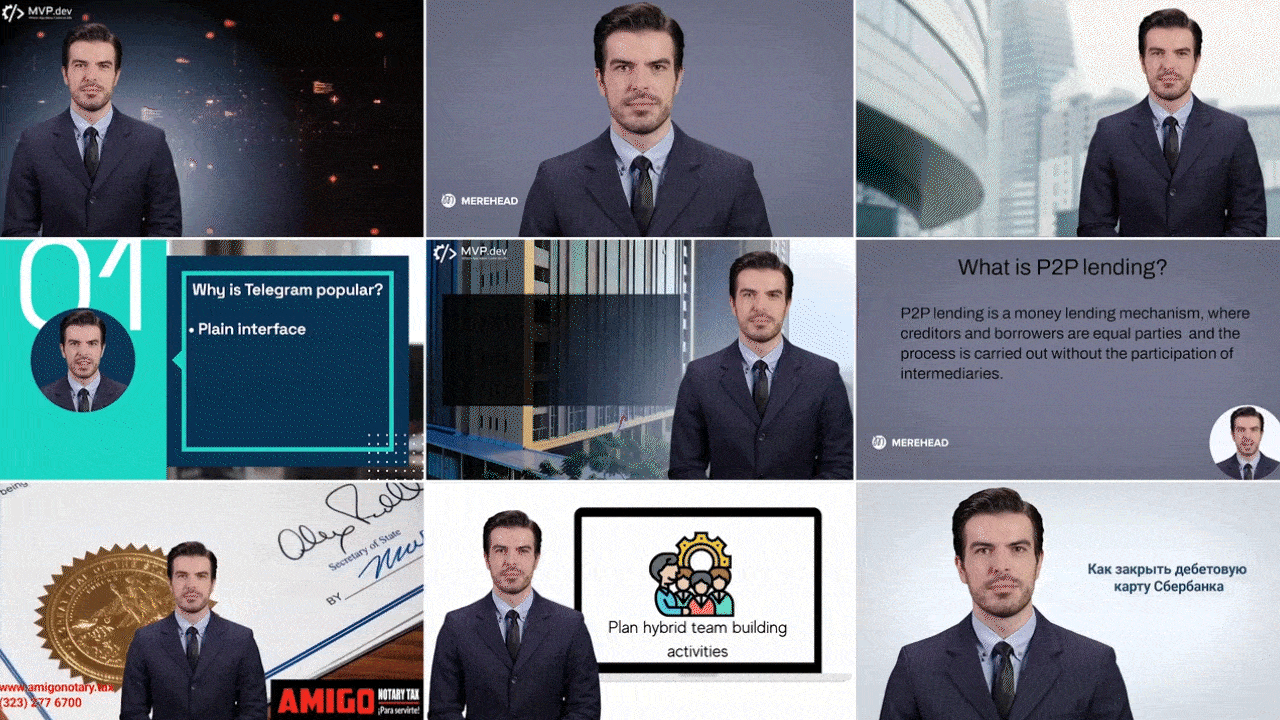Insights
The Era of AI: The Future or the End of Work as We Know It?
As the fastest growing online application ever, the rise of ChatGPT and generative AI is undeniable. And while we cannot deny feeling uneasy about the changes it might bring, it also opens a whole new world of possibilities. It might greatly enhance human potential and lead to new opportunities and innovations. But the answer in how we deal with this may lie in our ability to adapt and collaborate with this emerging technology. So instead of working against it, we need to learn how to work with it. Because with the current speed of development of AI, it will take months before our current tools look like toys. So get ready for fast forward life and welcome to the start of a new era: The Era Of Intelligence.

A collective WTF
The wave of AI tools we see today make them an instant hit, straight out of the box: they require no technical knowledge, run on existing technology and use basic text input as primary interaction. Their simplicity, accessibility and wide range of applications create the perfect storm for mass adoption. And it’s easy to see why. You give it a prompt, and instead of receiving a list of links, you receive well-written, conversational text on whatever topic you want, in any style you want.
Where technologies like Web 3.0, metaverse, and NFT’s struggle with delivering real value, generative AI’s popularity in just months points to the fact that it solves real problems for real people. And while chatbots aren’t new, chatbots that are trained on the entire internet and can apply almost human reasoning and logic are.
"It’s the most important advance in technology since the personal computer, the internet and the mobile phone"
— Bill Gates
Although visual models like DALL-E and Midjourney sparked excitement, perhaps especially among designers, it wasn’t until OpenAI’s ChatGPT that there was a collective WTF. All of a sudden there was an application that felt like magic. And when people like Bill Gates say its the most important advance in technology since the graphical user interface and a development as fundamental as the creation of the microprocessor, the personal computer, the internet, and the mobile phone, you know it’s time to pay attention. We are at the start of something big. And that is both exciting and scary. Especially, if notable AI experts like Gary Marcus, Elizier Yudkowski and Geofrey Hinton - to name but a few - are more than worried about those same developments.

Hard to resist
Play around with ChatGPT and it feels like an upgrade that's hard to resist. Whether its summarising a meeting from a recording, checking code for bugs, or answering complex questions, it is already proving extremely helpful in everyday situations. So much so that GitHub is reporting that AI is responsible for writing forty percent of the code for users who have enabled it. Further developments will improve accuracy of output significantly delivering greater value with more humanlike results. We’ll be able to process and manipulate bigger volumes of information, faster and at practically zero costs.
"In the near future, we may ask ChatGPT to plan our trip completely, including flights and restaurants, without ever needing to visit a website.”
From simply writing emails to using AI for pretty much any high level job. A digital assistant for any repetitive, analytical or creative task. Imagine doctors being able to put in an entire patients medical history and use AI to check for things they might have missed and filling in any paperwork necessary. It’s easy to see how AI will integrate itself into our lives and become an essential tool in everyday tasks.
And it’s not just that we get hyper efficient, but also that traditional interface like websites will get less and less relevant as ChatGPT starts connecting directly to other apps through plugins. In the near future, we may ask ChatGPT to plan our trip completely, including flights and restaurants, without ever needing to visit a website. And all of this even without Apple having it integrated into their products, which is surely yet to come. But while it seems to be able to do it all, ChatGPT is not without its flaws.
Hallucinations
Besides the concerns that are being raised about privacy, legal rights and biases, there is another fundamental issue with large language models: they regularly hallucinate. Which is another way of saying it makes stuff up - with complete confidence. And there is currently no way of determining when it does this, although it seems especially likely whenever you tread outside the training data. Ask for a bio about Steve Jobs and it will do an amazing job, but ask the same about yourself and it will gladly make up the whole thing. So while things may look promising, we cannot blindly trust the output.
"Ask for a bio about Steve Jobs and it will do an amazing job, but ask the same about yourself and it will gladly make up the whole thing"

Although some might say that these problems indicate we are nowhere near a dangerously intelligent AI (or Artificial General Intelligence), Gary Marcus and others warn that AI doesn’t need to be super-humanly intelligent to create serious issues. AI that is flawed and unreliable but widely used can cause a lot of harm. Being able to produce nonsense that passes for knowledge, at zero costs, is one such danger. If there are no checks to confirm the accuracy of the information that AI’s produce, we might as well abandon the internet: obtaining reliable information will be impossible. At least the current misinformation crisis was somewhat limited by what people could produce. And while OpenAI has put up guardrails to prevent misuse, other companies might not do the same. At that point, we are not just looking at trolls responding to tweets, but entire fake scientific journals filled with whatever you can imagine, complete with code to go with it. Combine that with perfectly realistic deepfakes from anyone you can imagine (including family members) and it will be virtually impossible for most people to distinguish between real and fake.

Replacing us
All these recent improvements have a lot of us thinking: Will AI make me irrelevant? From analysts to artists, everybody is wondering who will be next. Of course, new technology as impactful and fast paced as generative AI is always accompanied by fear. But this time, it does feel different. And there is good reason why, because it won’t be long before AI will make its way into every piece of technology we use. From how we work, to how we learn and how we communicate. It will transform our world, in both good ways and bad. Industries will change because of it. Businesses will stand out by how well they use it.
"It won't be long before AI will make its way into every piece of technology we use"
The introduction of ChatGPT three months ago has already sparked numerous studies on what this will mean for certain jobs and industries. A team of researchers analyzed what industries and occupations will be most exposed to artificial intelligence. While legal service providers, insurance agents, and telemarketers are at the top of the list, the impact of AI on these professions is uncertain. Merely being exposed to AI doesn’t guarantee that it will replace workers instead of improving their abilities. Two M.I.T. doctoral students conducted a randomized, controlled trial on experienced professionals in fields like human relations and marketing. The results of the trial showed that those who used ChatGPT completed the assignments on average 37 percent faster than those who didn’t, leading to a significant increase in productivity. Additionally, they reported a twenty percent increase in job satisfaction.
So, we need to prepare ourselves for what's to come. Because robots might actually be able to do some of our jobs. For some of us, it might mean taking on a different role. Not that of strictly creators, but of guides or supervisors. Because it is certainly likely that instead of having five AI-enhanced writers doing even better work, some companies end up with one AI-charged editor and zero writers.

Role of design
The American biologist and writer E.O. Wilson said more than a decade ago, the real problem of humanity is that we have Paleolithic emotions, medieval institutions and godlike technology. As artificial intelligence is set to be one of the pivotal moments in the next hundred years, it seems more relevant now than ever before. It's therefore crucial that we balance ethics and appropriate measures with the potential of this new technology. We’ll have a limited amount of time to determine how and when we use it.
"Design can help make prompting more intuitive and make AI more accessible."
Navigating through the ever-changing landscape of AI, it becomes clear that design can play a significant role in helping us deal with the challenges and opportunities that come with it. It can help us understand the potential impact of AI on different aspects of our lives, and how we can best integrate it into our workflows and processes. Design can help make prompting more intuitive to make AI more accessible. And by thinking creatively and outside of the box, designers can help identify new opportunities for AI, and help drive innovation in this field.
So while AI presents many challenges and uncertainties, it also presents many opportunities for growth and innovation. By embracing design principles, we can help ensure that AI is developed and integrated in a way that benefits people, not just robots.
Curious about our methodology or how to use AI to accelerate your business? Let’s have a coffee.